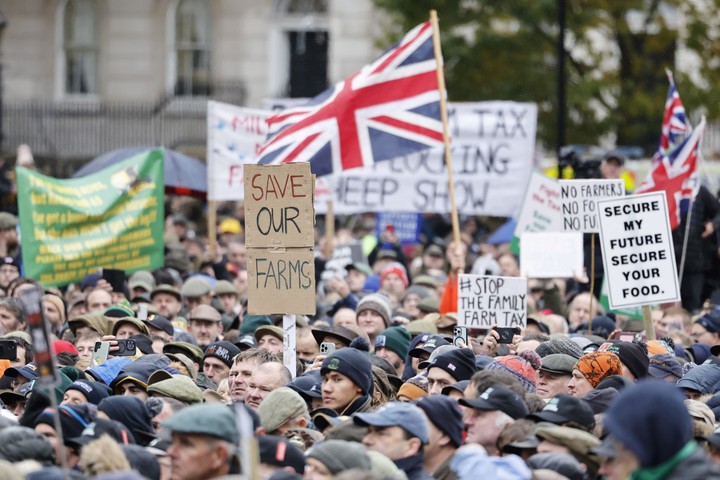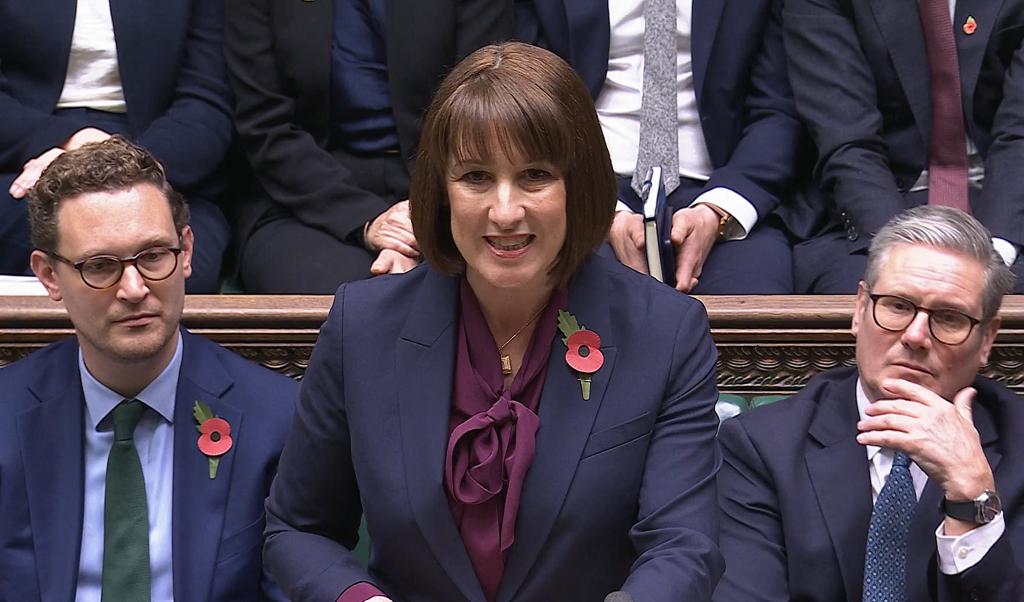Farmers Unite Against Inheritance Tax Threatening Family Farms
Farmers rally against inheritance tax changes, fighting to protect family farms and ensure food security for future generations in the UK.

Key Points
- Thousands of farmers in the UK rally against proposed inheritance tax changes that threaten family farms and food security.
- The National Farmers Union argues that up to 70,000 farms could be impacted by the new tax, despite government claims of only 500 affected.
- Farmers express deep concerns about the financial burden of the tax, urging the government to reconsider its policies to protect rural livelihoods.
In recent weeks, a significant wave of discontent has emerged from the farming community in Great Britain. With over 20,000 farmers rallying in
, the core issue revolves around proposed changes to inheritance tax that could spell disaster for family farms and the nation’s food security. Facing the potential for severe financial strain, farmers are banding together to voice their concerns and fight for their livelihoods.
The proposed changes to the inheritance tax, unveiled in Chancellor
’s recent Budget, indicate that from April 2026, farms valued at over £1 million will now be subjected to a 20% inheritance tax, effectively marking an end to the previous tax exemptions. This change occurs at a time when many farms are already grappling with lower profit margins and the pressures of an increasingly volatile market driven by climate change and import competition.

During the rally, farmers held placards with powerful slogans like “No farming, no food, no future”. This demonstrates not only their resolve but also the understanding that their fight is not just about tax but about ensuring food production continues effectively in the UK. For instance, David Armstrong, a Lincolnshire farmer, expressed that the prospect of a £700,000 tax bill looming over his family has given him sleepless nights, emphasizing a worrying trend many farmers are facing.
Community Sentiment and Government Response
Despite the administration’s assurances that only about 500 farms will be impacted, organizations like the National Farmers Union (NFU) argue that the true number could be as high as 70,000. This discrepancy highlights a fundamental disconnect between the Government's understanding of rural farming realities and the actual circumstances faced by farmers.
As farmers like Emma Robinson put it, this tax not only jeopardizes their ability to pass down family farms but also threatens their very existence as small producers. Robinson stated emphatically, “It’s being taken out of my hands by someone that’s been in parliament for literally days”. This sentiment is echoed by many in the community who view this as an attack on their rural culture and lifestyle.

The Human Cost Behind Numbers
Beyond the figures and statistics lie the real stories of families facing the consequences. Farmers argue that while their land may hold significant financial value on paper, the reality is starkly different. Many farms operate on thin margins, making it unsustainable for heirs to absorb the tax without selling off parts of the land. Richard Wainwright, a farmer from
, articulated this struggle powerfully by saying, “We are talking about possibly striking… it’s seriously going to impact the food chain”.
The NFU’s president, Tom Bradshaw, has been vocal about the emotional toll that these policy changes impose on the agricultural community. He fears for the future of British food security and has passionately urged the government to reconsider its stance. “I’ve never seen an industry that’s been betrayed the way this one is today”, he lamented, stressing that it is time for the government to engage in meaningful dialogue with farmers.
Looking Ahead
As farmers mobilize and threaten potential strikes, they exhibit a growing willingness to fight back against policies they deem oppressive. This collective action has garnered support from various sectors, indicating a strong coalition rooted in the understanding of the vital role agriculture plays in society, not just for food production, but for jobs and rural communities.
The ongoing protests signal a crucial moment for the farming community. They are not only advocating for their economic survival but for the continuity of cultural heritage interconnected with the land. If the government genuinely wishes to reflect its commitment to supporting rural communities, a reevaluation of these inheritance tax changes will be necessary.
The farming community is calling for recognition of their challenges and support for measures that sustain their livelihoods. By fostering a constructive relationship between the government and farmers, all parties can work towards a solution that honors the essential role of family farms in the UK's agricultural landscape.


